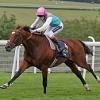^ this. in the medium-to-long-term, it made me drained and exhausted for no reason.
it's supposedly a vasodilator
Effects of Ginkgo biloba extract on blood pressure and vascular endothelial response by acetylcholine in spontaneously hypertensive rats.
We previously demonstrated that Ginkgo biloba extract (Ginkgo) produced vasodilation via the nitric oxide pathway in aortic segments isolated from Wistar rats. In this study, we have analysed the effects of daily long-term oral Ginkgo treatment on blood pressure, vascular tone, and calcium mobilization to evaluate the clinical availability. Spontaneously hypertensive rats (SHR) and Wistar Kyoto rats (WKY) were fed either a control diet or a diet containing 0.05%-0.5% Ginkgo for 30 days. Administration of Ginkgo did not change systolic blood pressure in WKY, but significantly decreased systolic blood pressure in SHR. In thoracic aortic preparations isolated from SHR, diminished relaxation in response to acetylcholine was improved by a Ginkgo-containing diet. This diet significantly decreased the EC50 value and significantly increased maximum relaxation in response to acetylcholine in SHR. In aortic segments isolated from WKY, acetylcholine-induced relaxation was not affected by a Ginkgo-containing diet. Sodium nitroprusside-induced relaxation was unchanged by a Ginkgo-containing diet in SHR and WKY. We also examined the effects of a Ginkgo-containing diet on the intracellular calcium level of aortic endothelium using a fluorescent confocal microscopic imaging system. Calcium Green 1/AM preloading indicated that acetylcholine significantly increased the endothelial intracellular calcium level. The Ginkgo-containing diet significantly enhanced this increase in the aortic endothelium of SHR, but did not change that of WKY. The results suggested that Ginkgo enhanced endothelium-dependent vasodilation and elevation of the endothelial intracellular Ca(2+) level in SHR, resulting in hypotension. This accelerative effect of Ginkgo on Ca(2+) mobilization seemed to be associated with restoration of impaired dilatory function induced by acetylcholine in endothelial cells.
Ginkgo biloba extract in the treatment of tinnitus: a systematic review
Tinnitus is a symptom frequently encountered by ear, nose, and throat practitioners. A causal treatment is rarely possible, and drug and nondrug treatment options are limited. One of the frequently prescribed treatments is Ginkgo biloba extract. Therefore, randomized, placebo-controlled clinical trials of Ginkgo biloba extract preparations were searched for and reviewed systematically. There is evidence of efficacy for the standardized extract, EGb 761® (Dr Willmar Schwabe GmbH & Co KG Pharmaceuticals, Karlsruhe, Germany), in the treatment of tinnitus from three trials in patients in whom tinnitus was the primary complaint. Supportive evidence comes from a further five trials in patients with age-associated cognitive impairment or dementia in whom tinnitus was present as a concomitant symptom. As yet, the efficacy of other ginkgo preparations has not been proven, which does not necessarily indicate ineffectiveness, but may be due to flawed clinical trials. In conclusion, EGb 761®, a standardized Ginkgo biloba extract, is an evidence-based treatment option in tinnitus.
though at least one negative study...
Effectiveness of Ginkgo biloba in treating tinnitus: double blind, placebo controlled trial
Objective: To determine whether Ginkgo biloba is effective in treating tinnitus.
Design: Double blind, placebo controlled trial using postal questionnaires.
Participants: 1121 healthy people aged between 18 and 70 years with tinnitus that was comparatively stable; 978 participants were matched (489 pairs).
Intervention: 12 weeks' treatment with either 50 mg Ginkgo biloba extract LI 1370 three times daily or placebo.
Main outcome measures: Participants' assessment of tinnitus before, during, and after treatment. Questionnaires included items assessing perception of how loud and how troublesome tinnitus was. Changes in loudness were rated on a six point scale. Changes in how troublesome were rated on a five point scale.
Results: There were no significant differences in primary or secondary outcome measures between the groups. 34 of 360 participants receiving active treatment reported that their tinnitus was less troublesome after 12 weeks of treatment compared with 35 of 360 participants who took placebo.
Conclusions: 50 mg Ginkgo biloba extract LI 1370 given 3 times daily for 12 weeks is no more effective than placebo in treating tinnitus.
Edited by gamesguru, 27 September 2015 - 11:44 PM.


















































